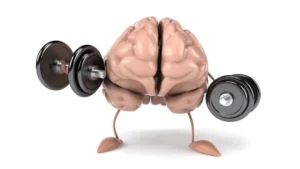Stress, “The Disease of Modern Society”

Stress, “The Disease of Modern Society”
Stress is a condition associated with anxiety, tension, and pressure. If it is not managed with healthy methods, it is likely to harm the body and mental health. Yet stress is not only harmful to health; On the other hand, we can also observe its positive effects. Our motivation can increase thanks to the stress felt up to a certain point. Have you noticed that as the deadline for a task approaches, you put in more effort, thanks to increased stress, up to a certain point? It may bring about being more prepared for an emergency. Thanks to this, we can respond faster and more effectively. So, stress is not just harmful.
Stress, shaped and changes according to a person's environment, also appears at different points in life. We can observe the effects of stress in every aspect of life, such as work, family, school, and social areas. Although there are different stress factors for everyone, there are also common factors that can cause stress in all of us. An upcoming project deadline at work or school can stress us all. Likewise, a natural disaster can be stressful for all of us. Although we tend to attribute the cause of stress to external factors as we encounter stress factors at different points in our lives, the source of our stress is internal, not external. How much stress an individual will experience due to an event varies from person to person.
It is also a subjective situation that events and situations create stress in the individual. A situation that is a significant source of stress for one person may not have the same effect on another. This is a very natural situation that comes with being human. The way the event is perceived varies with the characteristics of the person. Gender, socioeconomic factors, family life, age, cultural characteristics, and the coping method used are characteristics that vary from person to person and affect our approach to the situation. It is very natural for us to react differently to events. Although stressful events and stress levels may vary from person to person, the point that does not change from person to person is that it is not possible to eliminate stress. Therefore, the end we need to focus on here is how we can minimize the adverse effects of stress and how we can manage stress.
When we encounter psychological stress that creates mental pressure, we must use appropriate and effective coping methods. This includes focusing on stress management, a process aimed at minimizing stress. Stress management is a process that seeks to keep conditions under control and find solutions to individual and social problems. This process involves coping with, minimizing, reducing, or tolerating stress or conflict. These techniques contribute to a person living a happier, healthier, more productive, and balanced life.
Everyone has different ways of coping with stress. Two basic approaches are most common. One is the problem-oriented approach. In the problem-focused approach, the underlying causes of stress are at the center. For example, An individual who encounters stressful difficulties at work should first get to the cause of the difficulty and find an answer to why this problem creates difficulty for the person. Then, he must develop the skills required for the job. After this, it is time to regulate environmental factors; making the business environment more efficient should be considered at this stage. The other approach is the emotion-focused approach. This strategy involves making changes to the emotions and thoughts caused by stress. For the person to cope, the content of his thoughts must change. For example, it involves staying away from the problematic event, denying it, or perhaps the most common one we encounter in society, coping with the problem by making it humorous.
There are some coping methods that we have developed since childhood and that we all use. Although there are instantly effective solutions such as smoking, consuming alcohol, abstinence, and resentment, it is known that these solutions harm the person in many ways in the long run. Apart from these coping methods, solutions that are both immediately effective and will produce more positive results in the long term can be developed. Walking or exercising, yoga or breathing exercises are examples of methods that can be used in stress management.
Breath-Body-Mind Practices include practices that have proven effective in stress management through scientific research. Correct breathing in moments of intense stress can provide us with practical and instant solutions, as well as being an effective solution in the long term. It has been proven that, in addition to stress and anxiety, it can also have positive effects on depression, sleep disorders, eating disorders, and post-traumatic stress disorders.
In conclusion, stress is a part of our lives, and its effects cannot be limited to unhealthy results. The important thing is that the person develops a method that suits themselves to cope with stress. This way, we can increase our productivity and quality of life and pave the way for healthier lives!
The other approach is the emotion-focused approach. This strategy involves modifying the emotions and thoughts created by stress. To cope, the individual must change the content of their thoughts. For example, it involves avoiding the problematic event, denying it, or, perhaps most commonly encountered in society, turning it into a humorous situation.
There are coping strategies we've all developed and use since childhood. While some solutions, such as smoking, drinking, abstaining, and intoxication, may seem effective in the moment, they are known to be detrimental in the long run. Beyond these coping strategies, there are solutions that are both effective in the moment and yield more positive results in the long run. Walking, exercising, yoga, or breathing exercises are examples of methods that can be used to manage stress. Breathing-Body-Mind Practices include practices that have been scientifically proven to be effective in stress management.
During moments of intense stress, proper breathing can offer both immediate and effective solutions in the long term. Beyond stress and anxiety, it has also been shown to have positive effects on depression, sleep disorders, eating disorders, and post-traumatic stress disorder.
In conclusion, stress is a part of our lives, and its effects can't be limited to unhealthy outcomes alone. The key is for individuals to develop appropriate methods for coping with stress. This way, we can increase our productivity, improve our quality of life, and pave the way for a healthier life!
📁 Referanslar
ÖZEL, Y., & BAY KARABULUT, A. (2018). Günlük Yaşam ve Stres Yönetimi. Türkiye Sağlık Bilimleri Ve Araştırmaları Dergisi, 1(1), 48-56.




